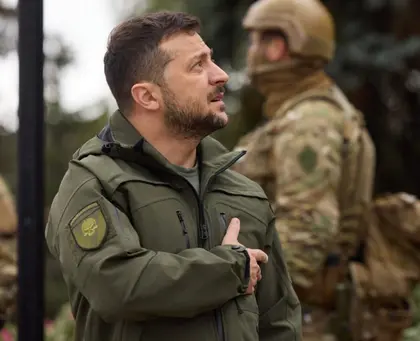Ukraine’s successful counter-offensive in Kharkiv Region has resulted in the return of more than 6,000 square km of territory and almost 400 settlements which are now under Kyiv’s control. Around 150,000 Ukrainian citizens who remained in those territories have now been liberated.
Russian invaders have been forced into a disorderly retreat. Here are the top seven strategic implications of Ukraine’s victory.
JOIN US ON TELEGRAM
Follow our coverage of the war on the @Kyivpost_official.
First, it formally shifts Ukraine’s goal in this war to liberate all of its territories. This includes both Crimea and the industrial Donbas region. There will be no “negotiated solutions” with territorial concessions. Ukraine may not yet know when and how, but it will return to its pre-2014 borders “because this is our land and our people,” President Volodymyr Zelensky said.
Second, the counter-offensive sends a message to those loyal to Ukraine on those territories still under Russia’s control: do not lose heart. Simultaneously, there is a message to Russian settlers and Ukraine’s collaborators: you’d better think twice.
Third, it proves that the Armed Forces of Ukraine can excel at large-scale offensive operations. Such a well-executed large offensive was, in fact, the first for Ukraine not only since the start of Russia’s 2022 invasion but since Russia’s annexation of Crimea in the spring of 2014.
Fourth, it shows Ukraine’s allies that their aid is working, that the interoperability with NATO forces – including Ukraine’s mastery of Western weapons systems – is in place, and that Ukraine is ready to become a fully-fledged member of NATO. Bringing Ukraine in will strengthen, not weaken, the alliance.

EU Transfers €1.5 Bln Raised From Russian Assets for Ukraine
Fifth, it underscores the importance of intelligence and media blackouts. In the era of 24/7 commentary across traditional and social networks, it shows the value of not disclosing military strategies or openly discussing the weak spots of Ukraine or Russia.
Sixth, it destroys the myth of Russia’s military might – and should be a wake-up call to Russia’s friends in emerging markets, particularly India, which continue to buy Russian weapons systems.
Seventh, it further solidifies popular support for President Zelensky inside Ukraine. The importance of this is not to be underestimated, as Zelensky still has plenty of political opponents at home and, since the beginning of Russia’s invasion on February 24, has been fighting ineptitude and corruption at home as much as he has been fighting Russia.
The views expressed in this article are the author’s and not necessarily those of the Kyiv Post.
You can also highlight the text and press Ctrl + Enter






